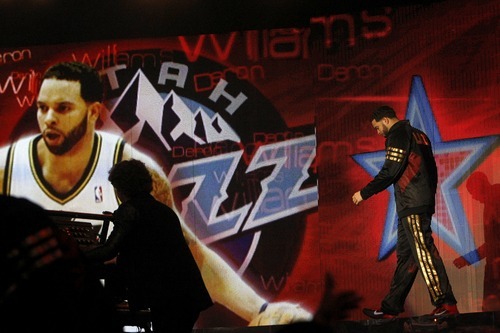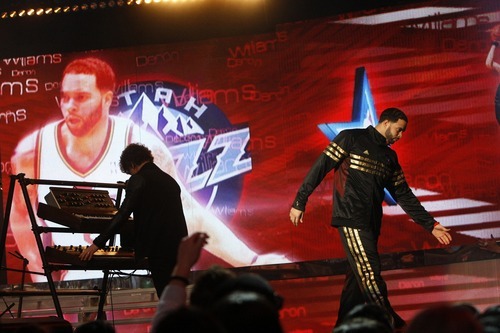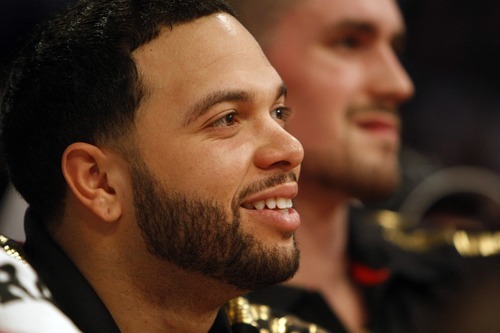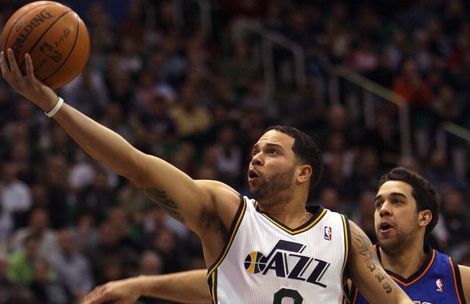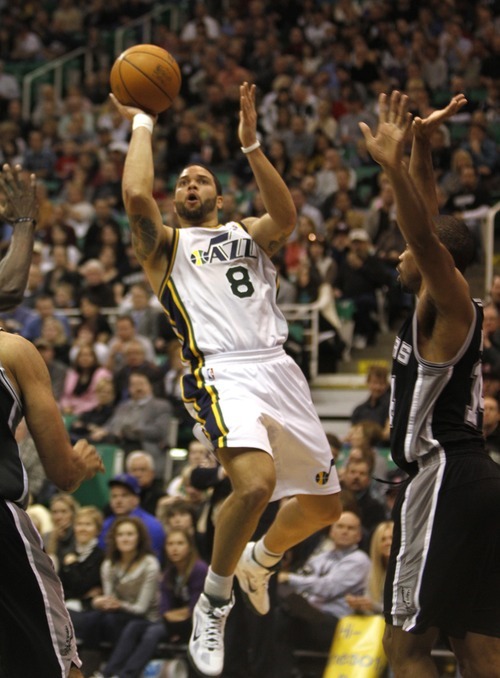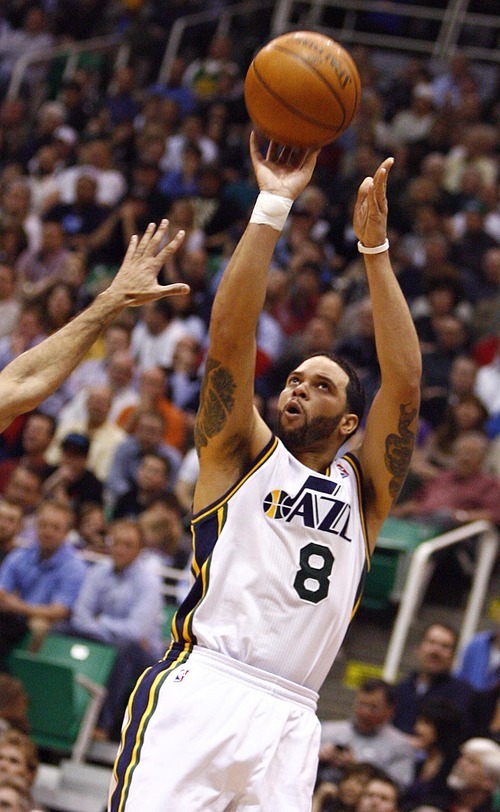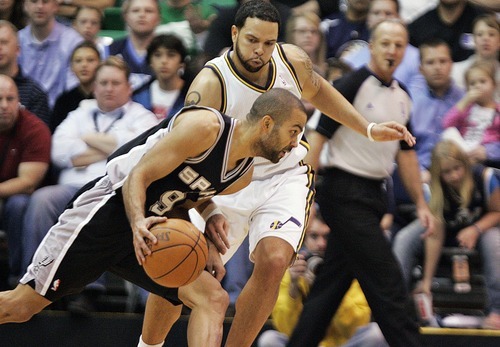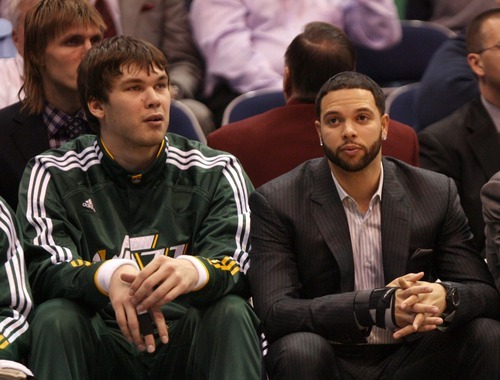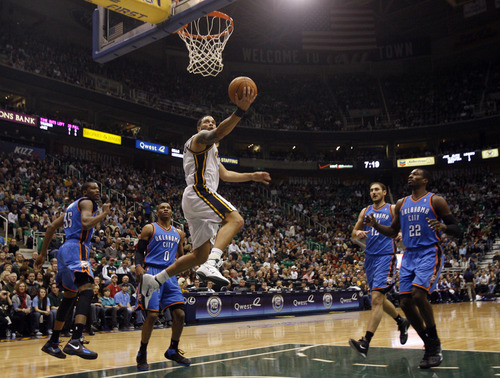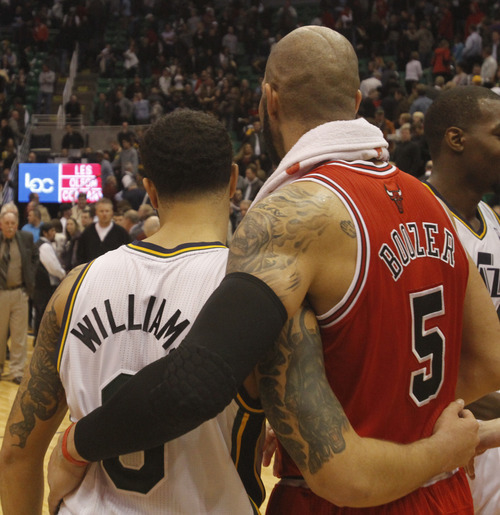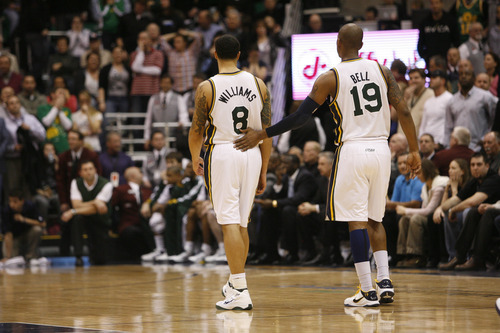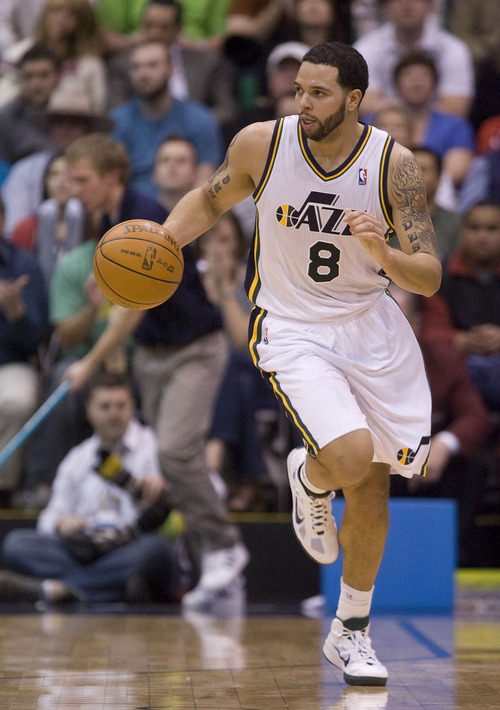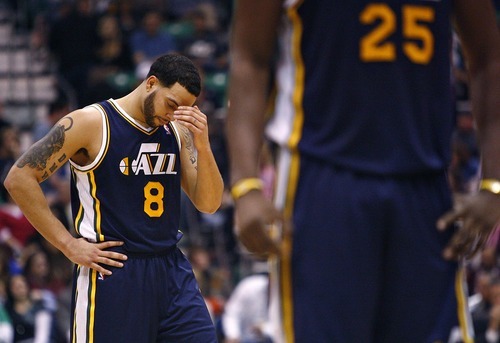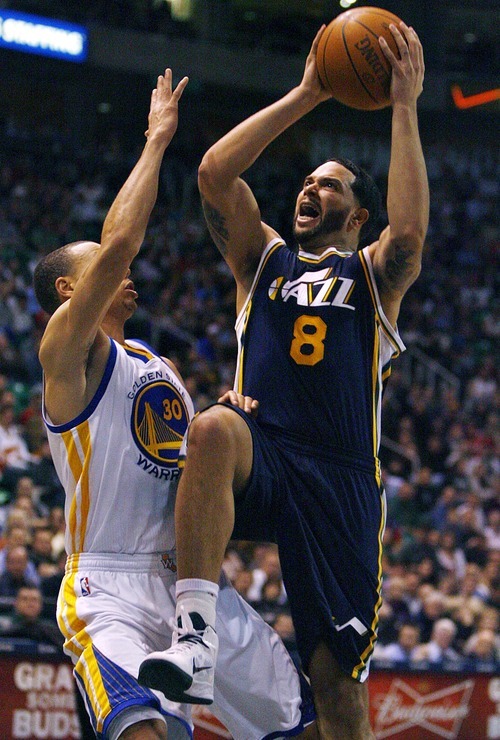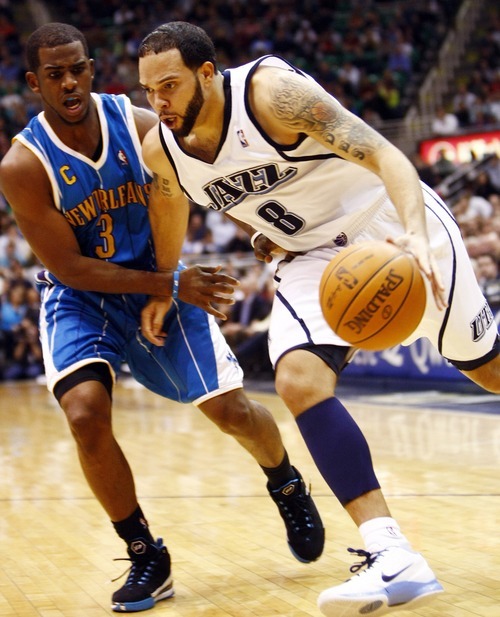This is an archived article that was published on sltrib.com in 2011, and information in the article may be outdated. It is provided only for personal research purposes and may not be reprinted.
Dallas • D-Will is gone.
Suddenly and abruptly. And in a manner even more shocking than the chaotic atmosphere that characterized the resignation of longtime Jazz coach Jerry Sloan and assistant Phil Johnson just two weeks ago.
The Jazz traded Williams Wednesday morning to the New Jersey Nets, immediately ending his six-year run with the Jazz.
The two-time All-Star and face of the franchise was exchanged for veteran point guard Devin Harris, rookie power forward Derrick Favors, two first-round draft picks and a reported $3 million.
"He's a great player and he's a good teammate for the guys and we're going to miss him," Utah coach Tyrone Corbin said. "I wish him well as he moves forward, and we'll have to work our way through it."
Jazz general manager Kevin O'Connor said there were two key parts to the deal.
The first is the front end. A struggling Utah team that is fighting for a Western Conference playoff spot with 24 games to go in the regular season receives a solid, proven player in Harris and a potential star in Favors. Harris has the talent to stabilize the unsteady Jazz and help guide the team through the remainder of the 2010-11 campaign. Meanwhile, the 19-year-old Favors — strong, highly athletic and soft-handed — could develop into a building block for the future.
"We've got to make him into a better basketball player for the pros and all that. We know that," said O'Connor, who compared Favors' evolution to the slow rise of Boston power forward Jermaine O'Neal. "That might take some time."
Harris, who will be 28 on Sunday, is averaging 15.0 points, 7.6 assists and 2.4 rebounds this season. The 6-foot-3, 190-pound guard is in his seventh year in the league, after starting his career in Dallas and being selected to the 2009 All-Star team.
Favors is averaging 6.3 points and 5.3 rebounds. The rookie power forward was selected by New Jersey with the No. 3 overall pick in the 2010 NBA Draft out of Georgia Tech, and O'Connor acknowledged that a Utah team that regularly posts 50-win seasons has a hard time pulling players with Favors' potential in the draft.
Utah will also receive New Jersey's first-round pick in this year's draft and a top-seven protected first rounder from Golden State in 2012.
Still, Corbin acknowledged that the deal was a spur-of-the-moment trade.
"It was an opportunity for us to move forward and they decided to make the move," Corbin said.
"Gut sense"
While the front end of the move leaves the downward-spiraling Jazz at an immediate disadvantage, the back end highlights the uncertain situation that small-market teams, such as Utah, face in a league that is becoming increasingly dominated by star-laden superpower franchises.
The high-profile Williams was under contract with Utah through 2011-12, and held a player option worth $17.7 million for the following season. Questions about Williams' longevity in Salt Lake City were already beginning to mount, and he spent the recent All-Star weekend in Los Angeles deflecting three consecutive days' worth of queries about his future with the Jazz.
"What it boiled down to, for me anyway, was my gut sense of whether we'd be able to re-sign Deron," Utah chief executive officer Greg Miller said. "And while I never saw any indication that he wouldn't re-sign with us, I never saw any indication he would."
Williams was adamant that he had not made up his mind whether he would remain in Utah, though, going so far as to sternly shoot down a report Sunday that he planned to take his talents to New York City.
He also asserted that uncertainty regarding a collective-bargaining agreement that expires June 30 was the biggest factor affecting his much-discussed decision.
But while Williams publicly pleaded neutrality and sources close to him insisted that he was still open to the idea of re-signing with Utah, O'Connor acknowledged that the thought of losing Williams — like Denver lost Carmelo Anthony and Cleveland lost LeBron James to big-name, big-city franchises — formed a significant part of the unexpected move.
"It was a combination of looking at a deal that I thought was healthy for our franchise," O'Connor said, "and the combination of saying we were running the risk — not saying he would or wouldn't do it; he never said he would stay, he never said he would leave — but we were running the risk of losing him."
Bad news
Williams learned about the move while watching ESPN's "SportsCenter," and sources close to the guard described him as first being shocked, then sad.
The All-Star was set to attend a morning shootaround in preparation for a Wednesday night game against the Mavericks. But when his name began running beside the Nets' on the screen crawler, Williams immediately knew something was wrong. Calls quickly began pouring in to his teammates, and Williams was soon bidding a hastily worded farewell to close, longtime friends.
"He found out by the TV in the training room, and everybody was just starting to put it together," Jazz swingman C.J. Miles said. "That's when I saw Al [Jefferson] in the elevator. It was just — nobody saw it coming. It was crazy. … I saw him getting on the bus when we were about to leave, and all I could do was kind of dap him up."
Jazz guard Raja Bell confirmed that Williams was unhappy with the trade, in part because his wife is about to have a baby. Bell spoke with Williams at length after the deal was announced, trying to reassure his friend that there is potential in his new home.
"I know where he's coming from," Bell said. "I know it's a hard pill to swallow, regardless of what your relationship was with the team or the fan base."
But while Corbin immediately replaced Sloan, there is no quick fix to fill the void left by Williams' departure. Selected by Utah with No. 3 overall pick of the 2005 NBA Draft, Williams guided the Jazz from the remnants of the Karl Malone and John Stockton era to four consecutive playoff appearances from 2006-10 and a Western Conference Finals berth in 2007. He averaged 17.3 points and 9.1 assists in 439 regular-season games with Utah. And Williams was posting career highs in points (21.3) and minutes (37.9) this season, playing through a lingering wrist injury while carrying the Jazz through a major transition period.
Now, Williams joins Sloan, Johnson, Carlos Boozer, Wesley Matthews and Kyle Korver as key names and integral pieces that the Jazz have lost in less than a year.
"I haven't even got over coach Sloan's departure yet," Jefferson said. "But this is the business, you know? It's just the way it goes. We'll accept it, and we're going to move on."
And as for Sloan? The ex-Jazz coach, reached by phone, had no desire to weigh in on Wednesday's seismic events.
"I really don't want to comment too much on anything," Sloan said. "I just hope the Jazz win. … Go Jazz."
bsmith@sltrib.comTwitter: tribjazz
Reporters Bill Oram and Steve Luhm contributed to this report.


